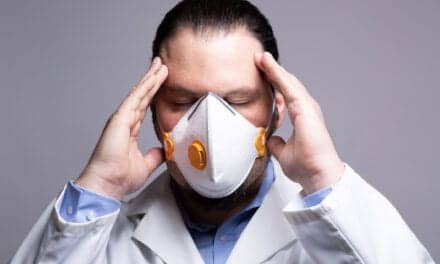Healthcare workers in the United States have been facing the COVID-19 pandemic for nearly four months now. Stressors such as insufficient personal protective equipment (PPE), fears of infection, feelings of isolation from family, and harassment from the community for enforcing strict infection prevention measures are creating strains on healthcare workers, which can interfere with providing adequate patient care during a crisis.
To help healthcare organizations support their staff, The Joint Commission has issued a new Quick Safety titled “Promoting psychosocial well-being of healthcare staff during crisis.” The advisory shares information on how healthcare organizations and staff can remove barriers to seeking mental healthcare. It also provides safety actions to consider, as well as strategies for healthcare workers to support themselves and their staff.
Additionally, the Quick Safety recommends the following strategies to support healthcare staff mental health.
Strategies to support oneself include:
- Practice self-care and engage in healthy coping strategies.
- Practice good sleeping habits.
- Partner with colleagues to cross-monitor each other’s well-being.
- Stay connected with friends and family.
- Check in with yourself.
- Strive for resilience post-crisis recovery.
Strategies for managers and leaders to support staff include:
- Communicate regularly.
- Model behaviors that promote self-monitoring.
- Encourage sharing of concerns to build transparency and mutual trust.
- Demonstrate the value of staff.
- Orient staff to psychosocial resources and offer the basics on psychosocial first aid.
- Proactively monitor mental well-being and provide active outreach.
- Encourage peer support.
- Strive for resilience in post-crisis recovery.
“The mental, emotional, and physical strain healthcare workers are experiencing during these unprecedented times of COVID-19 cannot be understated,” says Erin Lawler, MS, CPPS, human factors engineer, The Joint Commission. “The Quick Safety advisory serves to support individual healthcare workers and organizations alike by providing recommendations for protective strategies and ways in which to build individual and institutional resilience during crisis. It is critical that we ensure healthcare workers have access to psychosocial resources and support now and in the future .”
The advisory also compiles mental health resources from the American Medical Association, the Occupational Safety and Health Administration, the World Health Organization, and more.






